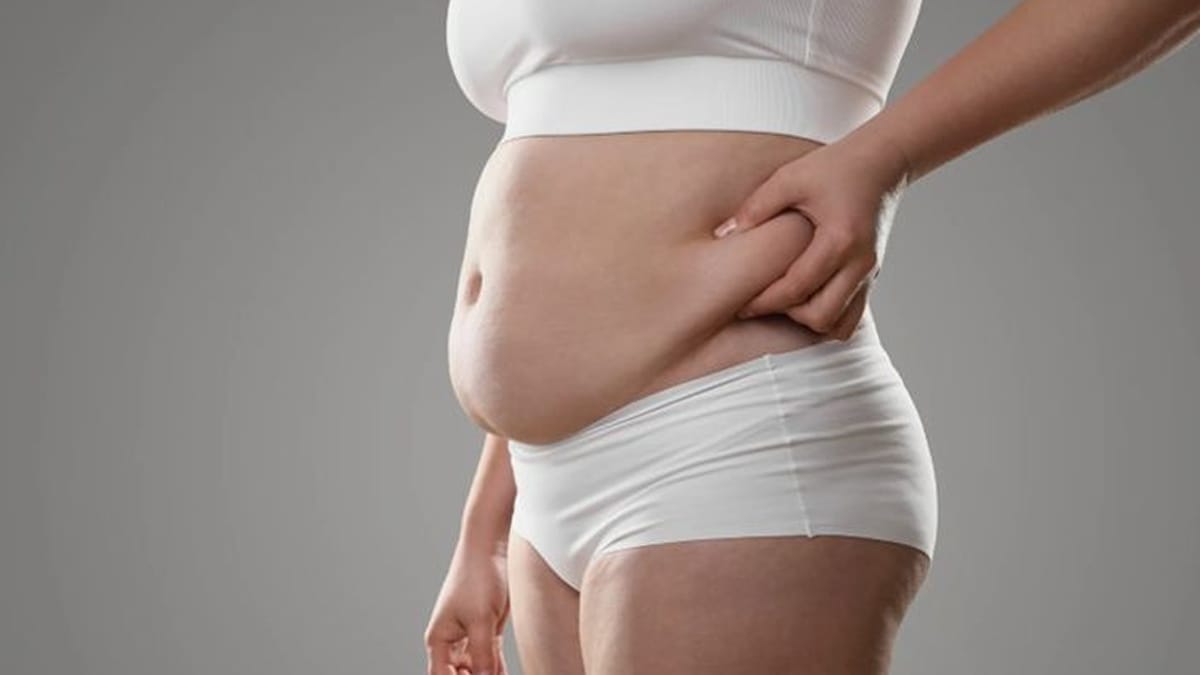Why Is Weight Loss Harder After the Age of 40?
If you are over 40 and wondering why losing weight feels so much harder than it used to, you are not imagining things. The truth is that biological, hormonal, and lifestyle shifts make weight loss after 40 more challenging compared to your 20s or 30s. But here is the good news: although weight loss may be harder after 40, it is still possible with the right strategies, awareness, and consistent effort.

This article will dive deep into why weight loss is harder after the age of 40, the science behind it, and practical solutions to help you achieve sustainable results.
Why Weight Loss Slows Down After 40
Slower Metabolism
One of the biggest reasons weight loss is harder after 40 is a decline in metabolism. Muscle mass naturally decreases with age, and since muscle tissue burns more calories than fat, your resting metabolic rate drops. This means you burn fewer calories even at rest, making it easier to gain weight and harder to lose it.Hormonal Changes
Hormonal shifts play a massive role. For women, perimenopause and menopause cause estrogen levels to drop, which leads to fat being stored more around the abdomen. For men, testosterone levels gradually decline, resulting in less muscle mass and more fat accumulation. These changes create a metabolic environment that favors weight gain.Insulin Resistance
After 40, many people develop increased insulin resistance, meaning the body has a harder time regulating blood sugar. This often leads to cravings for sugary foods, more fat storage, and higher risk of developing type 2 diabetes.Lifestyle Factors
Careers, parenting, and stress can leave little time for exercise and meal preparation. Sleep also tends to decline in quality with age, and poor sleep is strongly linked to weight gain. Chronic stress raises cortisol, which encourages fat storage, particularly in the belly area.Loss of Physical Activity
People in their 40s tend to be less active compared to earlier years. Whether due to work demands, family responsibilities, or health conditions, physical inactivity contributes significantly to slower calorie burning and weight gain.
The Science Behind Age-Related Weight Gain
Multiple studies confirm that weight loss is harder after 40 due to changes in body composition and hormones. According to a review published in Obesity Reviews, adults lose an average of 3–5% of muscle mass each decade after age 30. Research in The Journal of Clinical Endocrinology & Metabolism also shows that declining estrogen and testosterone levels affect fat distribution, appetite regulation, and metabolism.
This does not mean weight loss is impossible—it simply requires smarter strategies tailored to the body’s new needs.
How to Overcome Weight Loss Challenges After 40
Prioritize Strength Training
Since muscle mass is the key to metabolism, strength training becomes even more important after 40. Lifting weights or doing resistance exercises 2–3 times per week can rebuild muscle, improve bone health, and increase calorie burning.
Focus on Protein-Rich Diet
Higher protein intake helps preserve lean muscle mass and boosts satiety. Include lean meats, fish, beans, lentils, eggs, and low-fat dairy to keep hunger under control and metabolism active.
Manage Hormonal Health
For women experiencing menopause, and men with low testosterone, consulting a healthcare provider about hormone therapy or natural alternatives may help. Balancing hormones plays a vital role in maintaining a healthy weight.
Improve Sleep Quality
Quality sleep is non-negotiable. Aim for 7–8 hours per night, avoid late-night screen use, and maintain a consistent bedtime routine. Poor sleep elevates hunger hormones like ghrelin, making you crave more calories.
Reduce Stress Levels
Stress management through yoga, meditation, or mindful breathing lowers cortisol levels, preventing stubborn belly fat. Chronic stress not only affects weight but also long-term health.
Control Portion Sizes and Track Calories
Your body does not need as many calories after 40, so mindful eating becomes critical. Use smaller plates, measure portions, and consider using food-tracking apps to stay accountable.
Incorporate More Movement Into Daily Life
Even if you cannot hit the gym daily, increase non-exercise physical activity—take stairs, walk during breaks, or do light stretches. These small movements add up to significant calorie burning over time.
Hydration and Healthy Drinks
Replace sugary sodas and high-calorie beverages with water, green tea, or herbal teas. Hydration aids digestion, reduces bloating, and supports metabolism.
Avoid Common Mistakes That Make Weight Loss Harder After 40
Relying on crash diets that damage metabolism.
Skipping strength training and focusing only on cardio.
Consuming too much alcohol, which adds empty calories and disrupts sleep.
Ignoring stress and mental health.
Believing weight loss is impossible after 40.
Frequently Asked Questions
Why do I gain belly fat more easily after 40?
Hormonal shifts, reduced muscle mass, and higher stress hormones encourage fat storage around the abdomen.
Can women lose weight during menopause?
Yes, but it requires adjustments such as strength training, higher protein intake, and managing sleep and stress effectively.
Do men experience similar struggles after 40?
Yes, declining testosterone levels in men lead to muscle loss and fat gain, making weight loss harder without exercise and nutrition changes.
How many calories should I eat to lose weight after 40?
It depends on activity level, but in general, calorie needs decrease with age. Using a calorie calculator based on age, weight, and activity can give personalized numbers.
Are supplements necessary for weight loss after 40?
Not always, but vitamin D, omega-3, and protein powders may support health and metabolism if diet alone is insufficient.
What products are useful for weight loss after 40?
Recommended options include protein powder, resistance bands, herbal teas, fitness trackers, and low-sugar meal replacement shakes.
Practical Tips to Stay on Track
Do not skip meals, it slows metabolism.
Meal prep ahead of time to avoid unhealthy snacking.
Limit alcohol and late-night eating.
Celebrate small progress milestones to stay motivated.
Final Thoughts
Losing weight after 40 may feel harder, but it is not impossible. With the right mindset and approach, sustainable results are within reach. Here are seven key reminders:
Strength training is your metabolism’s best friend.
Prioritize protein to protect muscle and control hunger.
Sleep and stress management are just as important as diet.
Avoid extreme diets, focus on long-term habits.
Hydration and whole foods should dominate your meals.
Adapt workouts to your body’s needs—low impact but consistent.
Stay patient and consistent—progress may be slower, but it will be lasting.
Reference & Additional Reading
Inspired by studies and insights from:
www.health.harvard.edu
www.menshealth.com
www.healthline.com
www.womenshealthmag.com
www.ncbi.nlm.nih.gov
www.webmd.com
www.medlineplus.gov
www.tridenttech.edu
www.burnexia.com

